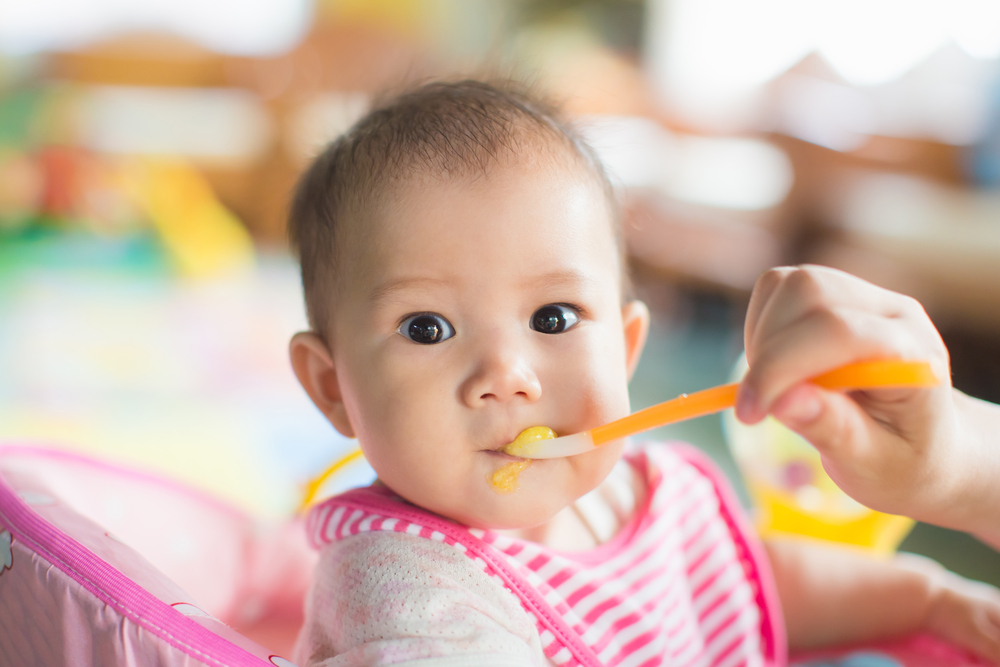Five Signs Your Baby is Ready for Solids

Just when you’ve figured out the whole breast or bottle-feeding routine for your wondrous, no-manual-included baby…they reach a new milestone and everything changes.
There are a few things to know about introducing your baby to their first solid foods. Experts still recommend exclusive breastfeeding or formula feeding for the first six months. But that doesn’t necessarily mean that at exactly six months you start with the first solid. Rather, base that decision on your baby’s individual signs of readiness—which might mean that baby’s first solid meal comes a few weeks before or after that six-month milestone.
All About Iron
It’s best not to push that few week range too far though—waiting too long after the six-month mark can increase the risk of iron deficiency. Most healthy term infants are born with reserves of iron that usually provide all the iron they need for about six months. After six months, some babies may not be getting enough iron from breast milk alone, which means it’s time to start providing iron-rich foods like meat and eggs. This is an important step because iron plays a key role in cognitive development.
With that in mind, here are five signs that your baby might be ready for solids:
- Good head control. If your baby still resembles a bobble head, it might be too soon.
- Your baby can sit up and lean forward.
- They are no longer using their tongue to push food out of their mouths and have started to demonstrate that they can move food from the front of their mouth to the back. Test this by putting a bit of breast milk or baby cereal on the front of their tongue and see if they push it out or can coordinate the movement to bring it back to swallow.
- Your baby can show you when they are full, for example, by turning their head away.
- They can pick up food and try to put it in their mouth.
What Foods to Start with
So now you know the signs and perhaps you’ve determined that your baby—and you—are ready to dive into the world of chewing, gumming, mashing, and wee baby spoons. First foods should be those containing iron, such as soft meats, eggs, fish, tofu and other meat alternatives. A lot has changed, and new guidelines from Health Canada, the Canadian Paediatric Society, Dietitians of Canada and the Breastfeeding Committee for Canada now recommend introducing whole eggs starting at six months of age, or as soon as your child starts eating solids. There is also new advice about the introduction of foods considered common allergens.
Current Guidelines on Allergies
The current guidelines do not recommend delaying the introduction of common allergens such as egg whites or fish until 12 months. In fact, baby’s first foods can include cooked egg (both the yolk and white). We all love the goodness of eggs! With six grams of the highest-quality protein and fourteen essential vitamins and nutrients, eggs are a practical way to add an iron-rich, wholesome food to your baby’s diet. They are also a natural source of choline, which plays an important role in your baby’s brain development.
In families with a history of allergies to these foods, check with your health care practitioner first as this is best addressed on an individual basis.
Now that you’ve done your research you can enjoy this momentous occasion. Bon Appétit!
For more information on the new guidelines and ideas on how to incorporate eggs into your baby’s diet, please click here.![]()















